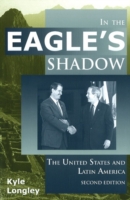- ホーム
- > 洋書
- > 英文書
- > History / World
Full Description
Best remembered as the father of Vice President Al Gore, Albert Gore, Sr., worked tirelessly in politics himself, a Democratic congressman and senator from 1939 to 1971 and a representative of southern liberalism and American reformism. In the first comprehensive biography of Gore, Kyle Longley has produced an incisive portrait of a significant American political leader and an arresting narrative of the shaping of a southern and American political tradition. His research includes archival sources from across the country as well as interviews with Gore's colleagues, friends, and family.
Longley describes how the native of Possum Hollow, Tennessee, became known during his political career as a maverick, a man who, according to one journalist, would ""rock almost anybody's boat."" For his actions, Gore often paid a heavy price, personally and professionally. Overshadowed by others in Congress such as Lyndon Johnson, J. William Fulbright, Richard Russell, and Barry Goldwater, Gore nonetheless played a major role on the important issues of taxes, the Interstate Highway system, civil rights, nuclear power and arms control, and the Vietnam War.
Longley situates Gore as part of a generation of politicians who matured on the messages of William Jennings Bryan, Woodrow Wilson, and Franklin Roosevelt. In the South, Gore belonged to a staunch group of liberals who battled traditional conservative forces, often within their own party. He and others such as Estes Kefauver, Frank Porter Graham, and Ralph Yarborough set the stage for subsequent generations, including that of Jimmy Carter and Jim Sasser, and later Bill Clinton, Al Gore, Jr., and John Edwards. From his career shines one encapsulating moment in 1952: squared off on the floor of the Senate against Strom Thurmond, who wanted Gore to sign the ""Southern Manifesto"" declaring southern resistance to desegregation, Gore responded simply, classically, ""Hell no.






